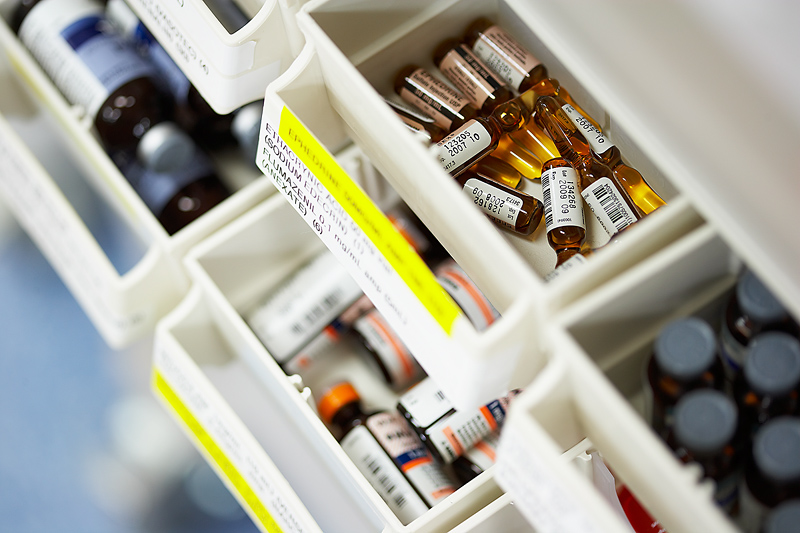
THURSDAY, June 19, 2014 (HealthDay News) — For an uninsured man with prostate cancer, the price of surgery could range from $10,000 to $135,000, depending on the hospital, a U.S. study finds.
What’s more, that wide range in charges — a 13-fold difference — has nothing to do with quality, researchers said.
“Consumers are used to higher prices meaning higher quality. But that’s not true in medicine,” said Dr. Bradley Erickson, the senior researcher on the study. “Prices are not attached to any kind of quality information.”
What does determine hospital charges for prostate cancer surgery? “We really don’t know,” said Erickson, an assistant professor of urology at the University of Iowa in Iowa City.
What’s clear, Erickson said, is that a man with no health insurance — or insurance with high copays — would have a tough time “shopping” for the best hospital for prostate cancer surgery.
For the study, recently published in the journal Urology, one of Erickson’s colleagues pretended to be an uninsured man in need of prostate cancer surgery. He called 100 American hospitals, following the same “script” each time: He was an otherwise healthy man with the means to pay out-of-pocket, and he wanted an estimate of the total charge for surgery — hospital and surgeon fees included.
Thirty percent of hospitals said they couldn’t offer an estimate. Among the rest, the price ranged from $10,100 to $135,000 — though only three hospitals were willing to put a quote in writing.
The average price was almost $35,000, more than twice the Medicare reimbursement, the researchers said.
Geography mattered. Hospitals in the Northeast quoted higher prices, on average, than hospitals in the South — about $40,800 versus $30,300, Erickson said.
But in other ways, there was little rhyme or reason. Big-city hospitals, for example, charged no more than those in small cities, on average. And there was no relationship between hospital charges and their ranking by U.S. News and World Report, which publishes a list of the nation’s “best” hospitals.
Experts who reviewed the study weren’t surprised.
Other U.S. studies have shown wide-ranging prices for health care, said Dr. Ezekiel Emanuel, chair of medical ethics and health policy at the University of Pennsylvania in Philadelphia.
He pointed to a study last year — by the same researchers — showing that the price of hip-replacement surgeries at U.S. hospitals ranged from roughly $11,000 to $126,000.
There are some reasons that hospital charges could legitimately vary. For example, their costs for equipment differ to some degree, Emanuel said.
“But mostly, it’s a mystery,” he said. “I don’t think the hospitals even know why they charge what they charge.”
The American Hospital Association declined a request to comment on the study.
The “good news,” Erickson said, is that 70 percent of hospitals did provide a price estimate, which is a larger response than some past studies have seen.
The not-so-good news: The “patient” here was a researcher who could ask savvy questions. Even so, a typical inquiry involved talking to four or five people, for up to 69 minutes, Erickson said. It’s not clear how a real patient would fare on the phone, he added.
And even if you get price information, “that’s only half the story,” Emanuel said. “You also need to know if you’re getting a Yugo or a Mercedes.”
Uwe Reinhardt, a health care economics expert at Princeton University in New Jersey, agreed.
“Telling Americans to ‘shop’ for health care is like pushing someone into Macy’s blindfolded, then saying, ‘OK, go shopping,'” Reinhardt said.
Not only does price have little relation to quality, he said, but the estimates hospitals give are just that. The actual charges could be greater.
The study did uncover one way for patients to get a financial break. One-third of hospitals said they would give a discount if the “patient” paid up front. On average, that meant one-third off the quoted price — but some hospitals went as high as 80 percent.
For patients who can pay in advance, Erickson said, it might be worthwhile to call different hospitals and ask about a discount.
To Reinhardt, the findings spotlight a convoluted system. “This study points up the sheer absurdity of our health care system, which most of the public isn’t even aware of,” he said.
Erickson noted that these issues will continue under Obamacare, even though fewer Americans will lack health insurance. Many people, he said, will either remain uninsured or have high deductibles or copays — and, presumably, care about prices.
More information
The Kaiser Family Foundation has more on health care costs.
Copyright © 2026 HealthDay. All rights reserved.

